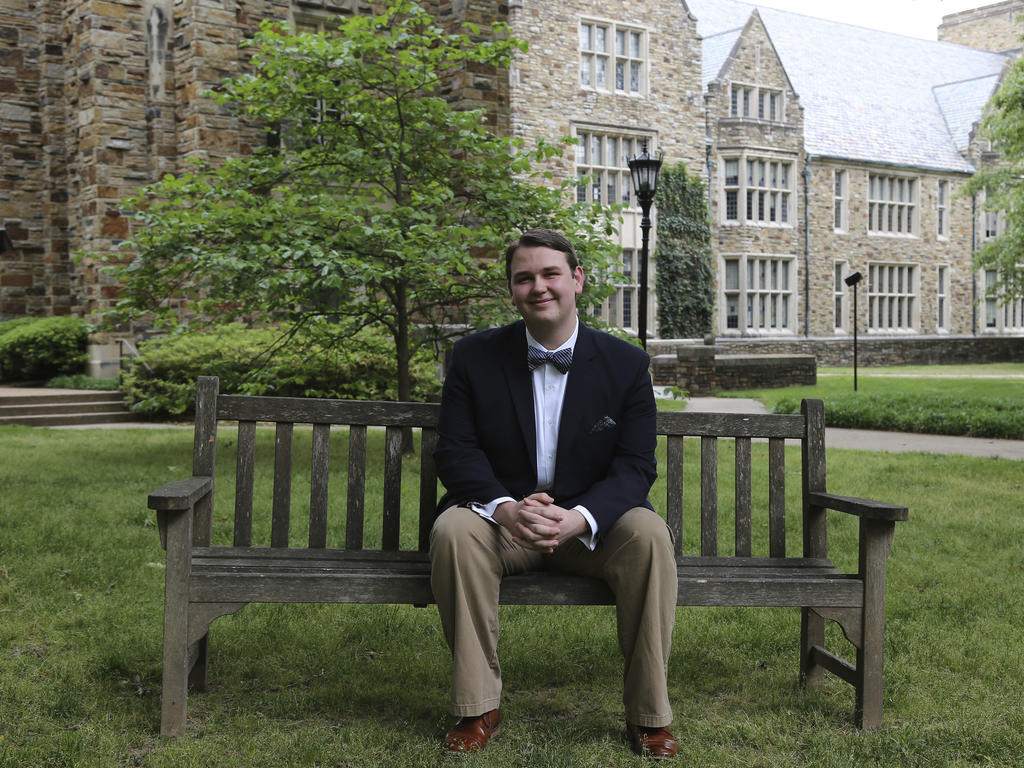Daniel Elliott ’19 spent his first year at Rhodes working as a Community Service Student Employee (CSSE) with the Bonner Office of Community Service. Alisa Redding ’18 sat down with Daniel to get an idea of what his off-campus job at nearby Snowden Elementary School was like, and how he has benefitted from the experience.
What are your everyday duties at Snowden?
I work in the front office of Snowden Elementary, so I have a variety of responsibilities that require me to interact with all kinds of people and be available for whatever the office or school might need me to do.
What have been some of your favorite moments while working at Snowden?
When working with one of the tutors at Snowden, I learned that she was part of the Rotary club in Midtown Memphis. I mentioned my work at a Rotary club back home in high school, and she was able to relay this information to Principal Stallsmith, who then asked me to start an Interact Club at Snowden for next year.
How would you compare working off campus versus students who work on campus?
Working on campus is definitely more convenient but getting off campus forces you to see more of the city. It pushes you to do your best, knowing that your actions affect people outside of Rhodes and that you are building relationships that actually depend on your work performance and for your site’s function.
How has working at Snowden made you more involved with the Memphis community and what happens outside our campus?
Before coming to school in Memphis, I didn’t know much about the Memphis community. Working at Snowden during service day for Welcome Week (the opening week of college for first-year students), I heard something from Principal Stallsmith that still sticks with me: “Snowden represents all of Memphis.” Children from all kinds of families attend school there—from a former mayor’s daughters to children whose only meals come from eating at school. Snowden represents all classes, races, backgrounds, and levels of education. Snowden provides a space where students can forget their personal backgrounds and develop relationships based on their own experience and strictly what happens within their classrooms. It is interesting to see how socio-economic diversity does not define educational success and that students are not controlled by their appearance and living situations.
This summer you worked with the first Mock Trial Academy. What was that experience like?
It was fantastic. The only thing students wanted to change about it was the length. We hope to expand it to two weeks in the future and get more students from across the country involved in the mock trial program and on Rhodes campus.
— Alisa Redding ’18
